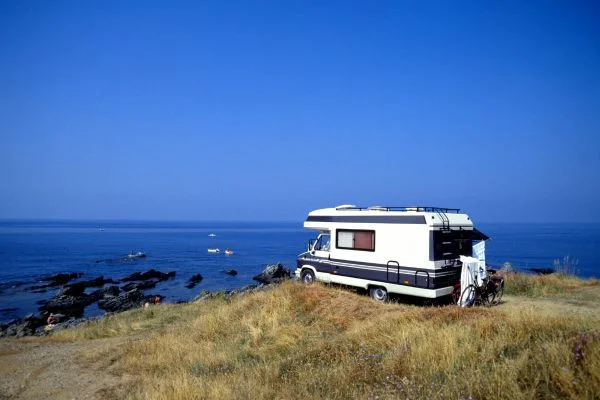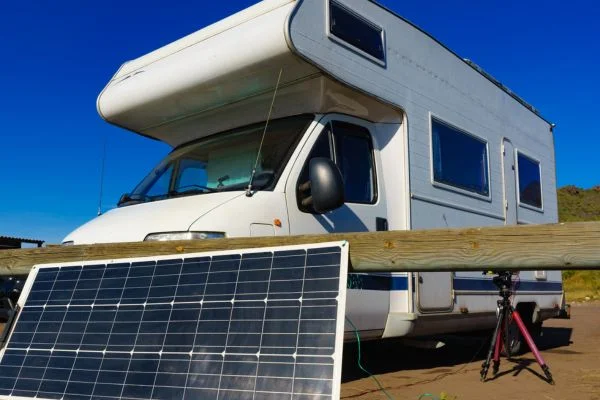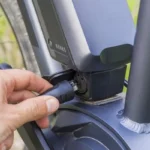A generator is an essential piece of equipment for anyone who travels. It’s a great way to ensure your campsite has power when needed, especially if there’s no power nearby. But what kind of generator do i need for my camper? There are many brands and models on the market, each with advantages and disadvantages. In this article, we’ll help you learn more about these generators, how they work, and how they differ from one another by answering some common questions about them:
What Kind Of Generator Do I Need For My Camper?
Campers need inverter generators for clean power and portability. It should be the right size (wattage), and it can run on gasoline, propane, or diesel, depending on your preferences. You should choose a model that fits your budget and takes maintenance into account.

Types Of Generators For Campers
There are primarily two types of generators to consider when it comes to generators for campers: Portable generators and stationary generators.
Portable Generators:
- Portable generators are designed to be easily moved from one place to another. Suitable for camping, RVs, boating, tailgating, and other mobile activities, they’re compact and convenient.
- There are different fuel options for portable generators, including gasoline, propane, and diesel. You can pick a generator that fits your preferences and fuel source.
- From small units for charging devices and running basic appliances to bigger models that can run RV air conditioners and more, portable generators come in all sizes and power ratings.
- Their versatility lets you use them anywhere, and they’re not permanently installed, so you can move them around.
Stationary Generators:
- A stationary generator is permanently mounted in your camper or RV. They provide continuous, reliable power to your camper’s electrical system and are usually bigger and more powerful than portable generators.
- An automatic transfer switch (ATS) seamlessly switches power sources on these generators. The ATS redirects electricity from the utility supply to your camper’s appliances and systems when there’s a power outage.
- Natural gas, propane, or diesel fuel are all common fuel sources for stationary generators.
- For camping trips or backup power systems for essential appliances, they’re perfect for those who want a constant power source.
- Stationary generators require professional electrical work and may have to comply with local codes and regulations.
As a result of their flexibility and mobility, portable generators are ideal for various outdoor activities, including camping. On the other hand, stationary generators provide reliable backup power with an automatic transfer switch. Choosing between these two depends on your needs, camping style, and budget. Now you know about what kind of generator do i need for my camper.
Read More: Do I Need To Ground My Generator When Camping?
How To Choose A Generator For Your Camper?
When you’re looking for a generator for your camper, there are several factors to consider:

Power Output:
How much power does your RV need? You’ll want a generator with enough wattage to keep all of the appliances in your RV running at once. You must also be aware that some appliances draw more electricity than others. For example, air conditioners and refrigerators pull much more power than lights do. This is important because it will determine how much fuel you need to run everything in your camper without losing power or causing damage (that is why it’s always best practice to run appliances with less than 20% fuel).
Fuel Type:
If you’re buying a generator for your camper, make sure it uses a fuel type that’s compatible with your existing setup and suits your preferences. Diesel, gasoline, and propane are the most common fuels for generators. You should consider convenience, cost, and availability when choosing your camping gear.
- The gasoline generator is widely available and easy to find at most gas stations, so it’s a popular choice. For campers who only need simple power, they’re less expensive upfront.
- A propane generator is a clean-burning option, and it’s convenient if you use propane for other camper appliances. Most campgrounds and stores have easy access to propane, which can be purchased at very low prices.
- For bigger campers and RVs, diesel generators are known for their fuel efficiency. There is, however, a possibility that diesel fuel availability may differ based on where you are located.
The fuel type you select and the availability of your chosen fuel type will play a significant role in determining whether your camping experience with your generator will be hassle-free and enjoyable.
Fuel Capacity and Consumption:
How much fuel will you consume per hour? The size of your tank will depend on how long you plan on staying at one location with no access to outside power sources. Generally, about four hours’ worth of use between refills should be sufficient for most activities like cooking dinner or watching TV during the evening hours when running water from the faucet isn’t necessary. However, air conditioning might still be needed after dark time has passed.
Noise Level:
Now, you should know the answer “What kind of generator do i need for my camper.” Noise level is a key factor to consider when choosing a generator for your camper, especially if you like peace and quiet. Inverter generators are designed to minimize noise, so they’re quiet. Compared to conventional generators, these models produce a lot less noise. When you check the decibel rating (dB) of a generator, you’ll get a better idea of how loud or quiet it runs. If you choose a quiet generator, you can enjoy nature without a noisy generator in the background disrupting you.
Portability:
You should also consider portability when choosing a generator for your camper. Consider the size and weight of the generator, especially if you’ll be moving it around a lot. For campers on the go, smaller, more portable models are great. Some generators even have wheels and handles to make transporting them easier. You can set up your generator anywhere, whether at a campsite, a remote location or while traveling with your camper, without worrying about its weight or bulk.
Run Time:
A generator’s run time is crucial when choosing one for your camper. Basically, how long can the generator run on one tank of fuel? Depending on how fuel-efficient a generator is and how big its tank is, its run time will vary.
For campers, a generator with a longer run time is more convenient, especially if you’re going to be away from power for a long time. Longer run time means fewer refuelings, so your power won’t go out as often. Think about your camping habits and how long your trips last when evaluating generators. Make sure you plan your camping schedule around refueling the generator.
Also, models with eco-modes or variable engine speeds may be more fuel-efficient, extending the generator’s run time further, so that’s an important thing to keep in mind. We hope now you know what kind of generator do i need for my camper.
Read More: How To Use a Solar Generator Camping?
How Big Of A Generator Do I Need For My Camper?
It depends on your camper. The generator you need for your camper will depend on several factors, including the size of your camper and the amount of power you need it to provide. It also depends on how many appliances you plan on running at once. For example, if you want to run an air conditioner in addition to lighting and a fridge, you’ll need more wattage than if all you needed were lightbulbs and a small refrigerator.
Generators are rated in watts (for their electrical output) or kilowatts (for their mechanical power output). If they’re not appropriately sized for what they’re being used for, they could overheat or burn out quickly, which would be bad news if no backup generator is available!
Read More: What Do I Need For Off Grid Camping?
Conclusion
Now that you know everything about what kind of generator do i need for my camper, it’s time to make your first purchase. First, ensure it’s the right size and power level for your camper; if not, get a bigger one!



